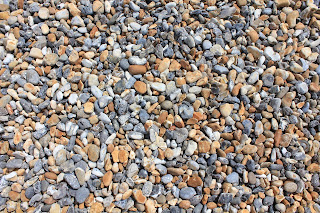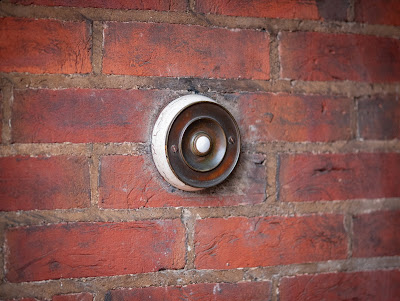What hardness should I set my water softener to?
What is fresh water?
Water naturally has a variety of minerals such as calcium and magnesium. Whether a water supply is considered "hard" or "soft" depends on the amount of these minerals in the water. Soft water contains lower levels of calcium and / or magnesium than hard water.
Do I need to soften my water?
It is not necessary to soften the water. The decision to soften is a personal choice that can affect your home and environment. If the hardness of your water is greater than 7 grains per gallon or 120 mg / L, you may need a water softener to make sure your appliances are working well and to improve the taste, smell or appearance of the water.
Benefits of water softening at home
- Prevents the accumulation of minerals (scale) inside pipes, fittings and water heaters.
- Extends the life of some devices.
- Reduces or prevents mineral stains on glassware.
- Prevents or reduces soap films and detergent quark in sinks, bathtubs and washing machines.
Disadvantages of Home Water Softening
- Can corrode your pipes. Corroded metal from pipes can end up in your water. This can contribute to high levels of lead and copper in drinking water.
- Potential health effects of a sodium supplement.
- Regular water testing and softener maintenance is necessary to ensure the softener is working properly.
- Negative impacts on the environment of the use of salt.
- The water used to regenerate the softener beads ends up as waste.
How do home softeners work?
Household softeners, also called ion exchange units, are appliances that remove calcium, magnesium, and other minerals from drinking water. The resin beads inside the fabric softener trap calcium and magnesium and exchange them for sodium or potassium. Once the resin beads fill with calcium and magnesium, a highly concentrated salt or potassium solution removes the calcium and magnesium from the beads. After passing through the beads, the resulting chloride solution becomes a waste stream that goes down the drain and eventually into the environment.
If I have a home water softener, how do I use it correctly?
Make sure you have your softener installed and maintained according to the manufacturer's instructions. Read the manufacturer's instructions before adding chemicals to the unit. Maintenance of the water softener will keep the water quality stable. This will help prevent corrosion problems. Furthermore:
- If you get water from a community water system, check if your community has already softened the water. Fresh water provided by a utility does not need additional softening and can cause corrosion problems for your home.
- Make sure the softener is set to the hardness of your water supply. If the hardness is set too high, the softener will cost more to operate and waste water, with an additional cost.
- If your home has a new copper plumbing, do not turn on your water softener for at least the first few weeks that you use water in your home. This will help the plumbing to form a protective mineral layer to reduce the risk of consuming excess copper. Learn more about copper in drinking water.
- Make sure that the fabric softener is filled with sodium or potassium chloride according to the manufacturer's recommendations.
- Smooth out just what you need. People generally choose to soften showers, sinks and laundry connections. Toilets, hoses, basement sinks and other cold water taps do not normally need to be connected to a fabric softener. In many cases, people choose to soften only hot water.
Check the manufacturer's instructions for dealing with these problems:
Obstruction: if the water supply is cloudy, it can block the softener resin with mud and clay. Backwashing will usually solve this problem. Adding a sediment filter before the softener can also help.
Iron or manganese encrustation: Iron or manganese exposed to air or chlorine can clog the resin and prevent it from working. This is known as inlay. Sometimes, it may be necessary to filter the water before it reaches your fabric softener to prevent fouling. Commercial cleaning products are available if the resin gets dirty. Cleaning products should be used according to the manufacturer's instructions to avoid contamination.
Bacteria and fungi: If your water supply is not disinfected before softening, bacteria and fungi can potentially grow on the surface. This can reduce your fabric softener's effectiveness.
What are the health effects of home softening?
A water softener that uses sodium chloride (salt) increases the amount of sodium in the water you drink at home. Consider the following if you have a home fabric softener:
- If you or someone in your home has a history of hypertension, see a doctor to drink softened water.
- You can decrease the amount of sodium you drink:
- Have a non-softened tap for cooking and drinking.
- Regenerate your fabric softener with potassium chloride instead of sodium chloride (salt). Potassium chloride is available in most stores that sell softening salt.
The calcium, iron and magnesium removed by softening are not harmful and can be beneficial sources of essential elements needed by the body. Removing them from the water could mean that you will need to get more from your diet.
What is the environmental impact of house softening?
Minnesota has a growing problem with chloride in water. Chloride in the water threatens our freshwater fish and other aquatic life. The chloride used in household water softeners can also affect the water used for drinking. It only takes a teaspoon of sodium chloride salt to permanently pollute five gallons of water. Once salt is in water there is no easy way to remove it.
In some communities, domestic water softeners flow into municipal sewage treatment plants that are not designed to remove chloride. The chloride passes through the sewage treatment plant and ends up in our lakes and streams. In homes with private wells and fabric softeners, chloride flows into the home's sewer system and then finds its way into lakes and streams.




Comments
Post a Comment